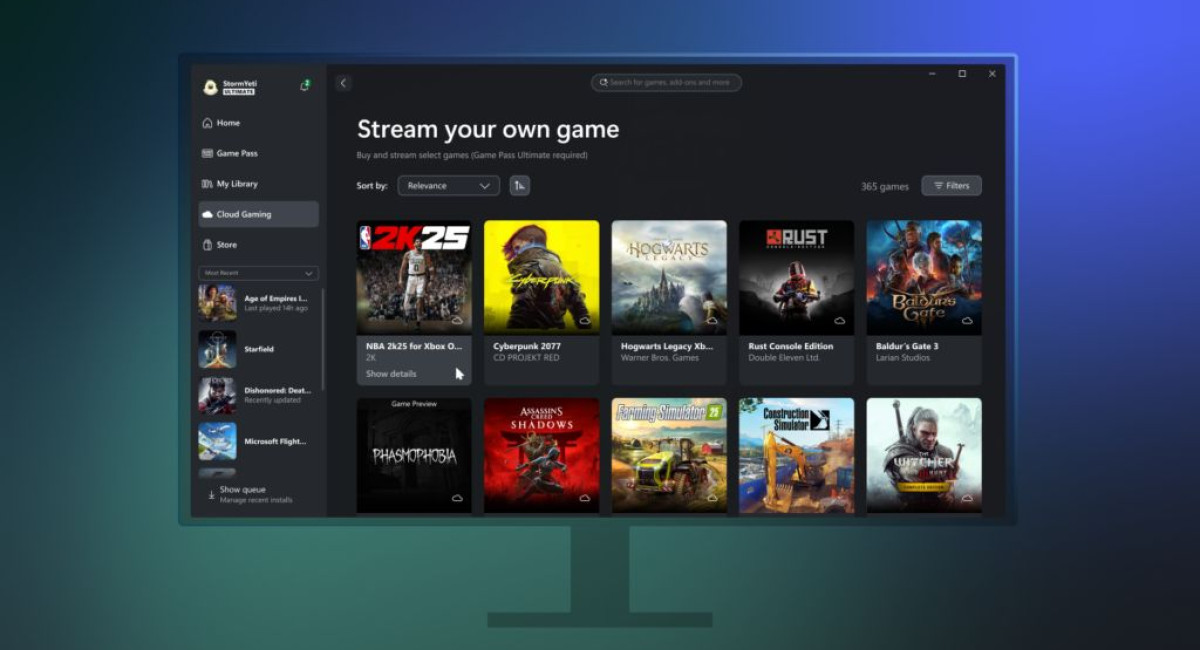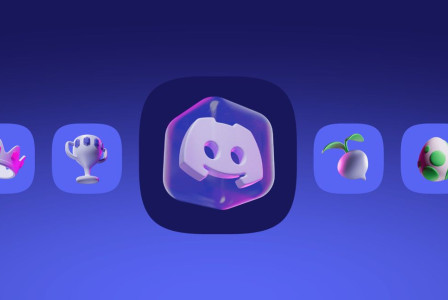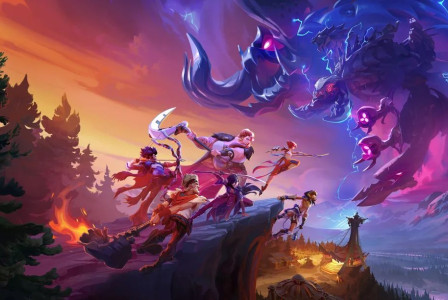SEARCH
Xbox expands game streaming capabilities to PC

SHARE IT
Xbox is taking another step forward in its effort to make gaming more accessible across devices. The company has begun testing a new feature that allows Game Pass Ultimate subscribers to stream their personal game libraries directly through the Xbox app on Windows PCs. Announced on Tuesday, this latest move is part of a broader initiative to eliminate hardware limitations and bring more flexibility to how and where players enjoy their games.
Initially available to Xbox Insiders, the feature enables users to stream games they already own—whether or not those titles are part of the Game Pass catalog. This includes some games that have traditionally been available only on console, opening up access to a broader range of content for PC users without requiring them to download massive game files.
This isn’t Xbox’s first foray into personalized game streaming. Earlier in 2025, the company allowed Game Pass Ultimate subscribers to stream their owned titles from the cloud to Xbox Series X, Series S, and Xbox One consoles. It also extended that capability to a variety of other platforms, including smart TVs, web browsers, smartphones, tablets, and even Meta Quest VR headsets.
The move to bring this functionality to PC comes at a particularly relevant time, as modern games increasingly demand substantial storage space. Call of Duty: Black Ops 6, for instance, requires an eye-watering 128GB of SSD space just to install. Streaming offers a convenient alternative, allowing players to jump into their favorite titles almost instantly, without waiting for downloads or worrying about available drive capacity.
With this feature, users will be able to access more than 250 streamable games from their own libraries, in addition to the titles available through the standard Game Pass subscription. Xbox has also indicated that this number is expected to grow, with plans to include more console-exclusive games and Play Anywhere titles in the near future.
The integration of console-only titles is particularly notable. These games, previously confined to Xbox hardware, will now become playable on PCs through cloud streaming, broadening their reach and increasing value for players who don’t own a console. This aligns with Microsoft’s ongoing efforts to blur the line between console and PC ecosystems, offering a more unified gaming experience.
Game Pass Ultimate, the tier required for access to these streaming features, continues to be central to Xbox’s strategy. Combining Xbox Live Gold, Game Pass for console and PC, and cloud gaming services, the subscription offers a comprehensive package that supports this new functionality. By extending the value of Game Pass Ultimate to include personal libraries—not just games from the subscription catalog—Xbox is positioning the service as an even more compelling option for a wide range of players.
The streaming feature is currently in beta and limited to Xbox Insiders, meaning that feedback from early users will likely shape its final form. Xbox has a history of gradually rolling out such features, refining them over time through public testing phases before launching broadly.
While the company has not yet shared a timeline for a full release, the expansion of this feature signals a broader commitment to cloud-based gaming. As internet infrastructure improves and more gamers embrace flexible, device-agnostic experiences, Xbox’s approach is designed to meet the demands of a shifting landscape.
This latest development also reinforces Microsoft’s long-term vision for Xbox—not just as a piece of hardware, but as a platform that exists across a wide array of devices. Whether on console, PC, or mobile, Xbox aims to make gaming more convenient, accessible, and inclusive, and the ability to stream personal games from the cloud brings the platform one step closer to that goal.
As competition heats up among major gaming platforms, features like personal library streaming help Xbox differentiate itself by putting player choice at the forefront. By reducing barriers to play and minimizing dependence on local storage, Microsoft is signaling that the future of gaming isn’t just digital—it’s portable, flexible, and increasingly personalized.
MORE NEWS FOR YOU

 Help & Support
Help & Support 

